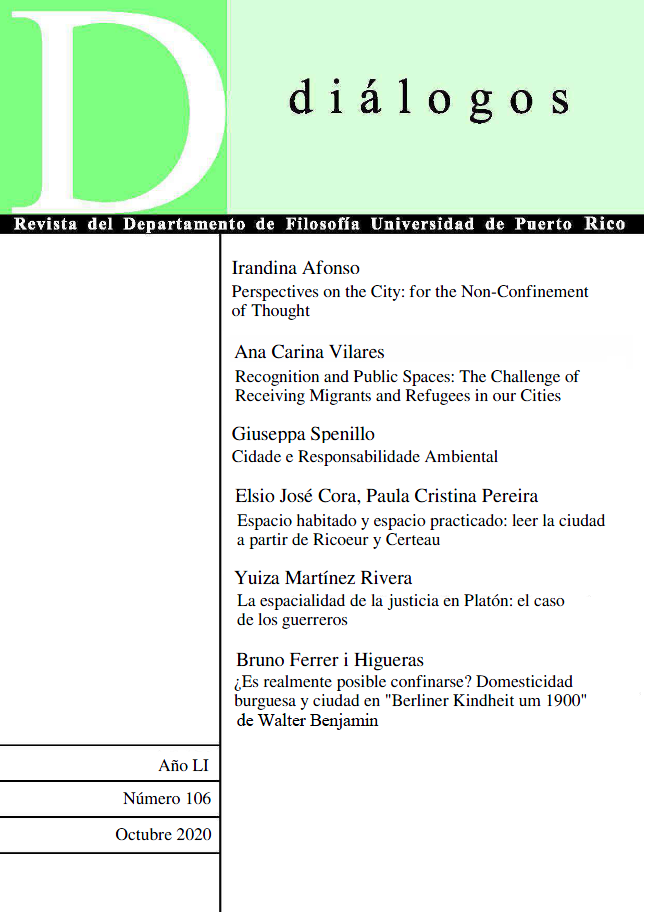Abstract
In the Republic, Plato defines the polis as a space of "cohabitation" (συνοικία) (Rep. II, 369c). Beyond mere geographical proximity, for Plato, this coexistence requires a communion of interests that establishes the relationships between its members. This paper argues that the architectural and urban design of the polis has an important role within the Republic, as it is what makes possible the spaces that reaffirm the ultimate goal of this political community: justice. According to Plato, these "beneficial" (χρηστόÏ,) or "healthy" (ὑγίειά) spaces would gradually influence citizens towards a path of virtue and prevent the assimilation of vice. These spaces, both as a reflection of and condition for justice, serve as the stage in which to practice the mandate of "everyone do their own thing" (Ï"á½° αὑτοῦ πράττει) to the extent that they enhance the different natures of the polis‘ members. A clear example of this conception of justice and its spatial reference is the dwelling of the warriors as described in book III of the Republic.

